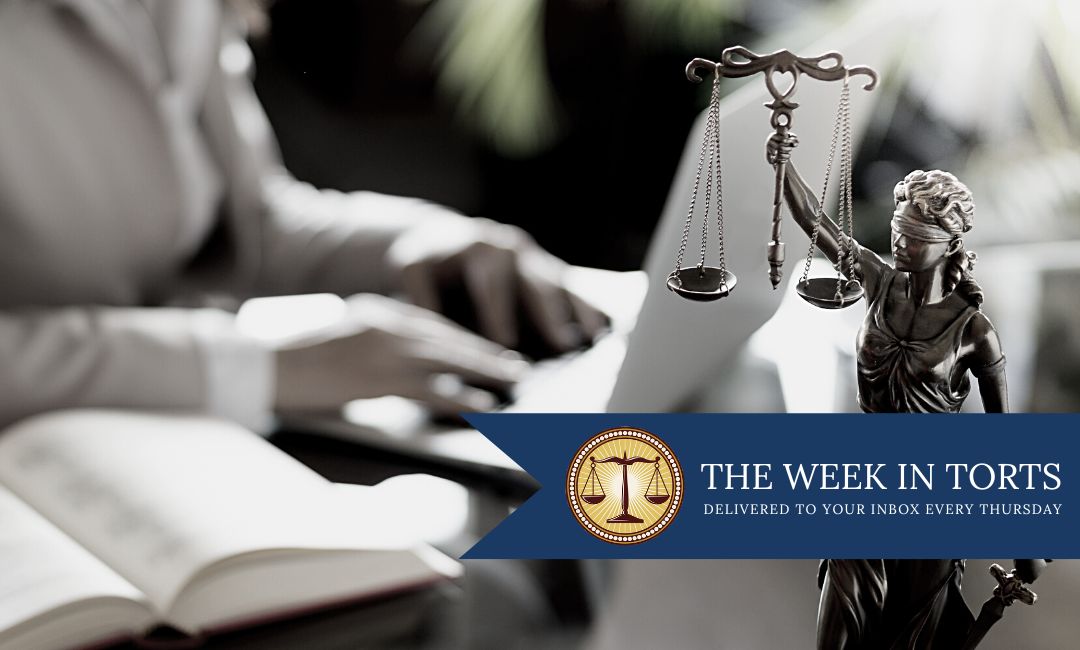The Week In Torts – Cases from February 17, 2023

Were they a team?
FLORIDA LAW WEEKLY
VOLUME 48, NUMBER 7
CASES FROM THE WEEK OF FEBRUARY 17, 2023
THE TRIAL COURT CORRECTLY GRANTED SUMMARY JUDGMENT FOR OWNER ON DIRECT NEGLIGENCE CLAIM DUE TO LACK OF CAUSATION – TRIAL COURT ERRED, HOWEVER, GRANTING SUMMARY JUDGMENT BASED ON VICARIOUS LIABILITY IN THE FACE OF DISPUTED ISSUES OF FACT SHOWING A JOINT VENTURE.
Harris v. Sunbelt Rentals, Inc., 48 Fla. L. Weekly, D285 (Fla. Fed. 8, 2023):
The plaintiff sustained injuries when a Bobcat skid-steer loader being operated by a co-defendant dropped a large object onto the plaintiff’s foot. Plaintiff sought to hold the loader’s owner, the defendant, Sunbelt, both (1) directly liable for the defendant’s alleged negligent failure to require that operators be properly trained; and (2) vicariously liable for the operator’s alleged negligent operation of the loader under the Dangerous Instrumentality Doctrine.
Because there were no issues of fact as to whether the operator had been negligently trained which was a cause of the accident, the court affirmed final summary judgment on the direct liability count against the defendant.
However, on the vicarious liability count, it reversed. The Court noted that under the Dangerous Instrumentality Doctrine, an owner has a nondelegable obligation to ensure that a vehicle is operated safely. The doctrine extends to lessees and bailees of motor vehicles who authorize other individuals to operate the motor vehicles.
One of the recognized exceptions to the doctrine occurs where the bailee entrusted with the owner’s vehicle, injures another while both persons are using the vehicle in furtherance of a common purpose (as joint adventurers).
In this case, the defendant argued it could not be held vicariously liable for the negligent operation of the loader under the Dangerous Instrumentality Doctrine, because the plaintiff was a joint adventurer in the use of the Bobcat at the cleanup site.
The court found that a version of the facts established that the two acted with a common purpose in using the loader, but the record did not contain undisputed facts establishing the plaintiff’s joint operation and control of the loader or his equal right to control and direct the operation of the loader, compelling reversal on the vicarious liability count.
TRIAL COURT DID NOT ABUSE DISCRETION IN AWARDING EXPERT WITNESS FEES TO THE PREVAILING PARTY WHERE THE INSURER LITIGATED THE CASE THROUGH SUMMARY JUDGMENT, BEFORE FINALLY CONFESSING ENTITLEMENT TO BENEFITS NINE MONTHS AFTER COMPLAINT WAS FILED.
United Automobile Insurance Co. v. FEIJOO, (48 Fla. L. Weekly D287), (3rd DCA Fed. 8, 2023):
Nine months into the litigation of this case while summary judgment was pending, the insurance company filed a notice of confession as to entitlement of benefits and stipulated to the plaintiff’s entitlement to attorney’s fees and costs.
When the plaintiff subsequently sought reimbursement for 16.42 hours in fees, the insurance company objected to then number of hours requested, arguing that only 9.2 were reasonable and compensable. The insurer filed a motion to waive the expert witness fee or in the alternative to preclude taxation of an expert witness fee.
The trial court denied the insurance company’s motion, held a fee hearing, and ultimately entered final judgment for 14.2 hours in attorney’s fees and 4.25 hours in expert witness fees.
Because the insurance company, had litigated the case through summary judgment, and challenged a number of compensable hours requested by the attorney after agreeing to entitlement, the trial court was well within its discretion to tax an expert witness’s fees as a cost in the plaintiff’s attempt to support a reasonable attorney’s fee. The court affirmed the trial court’s ruling.

